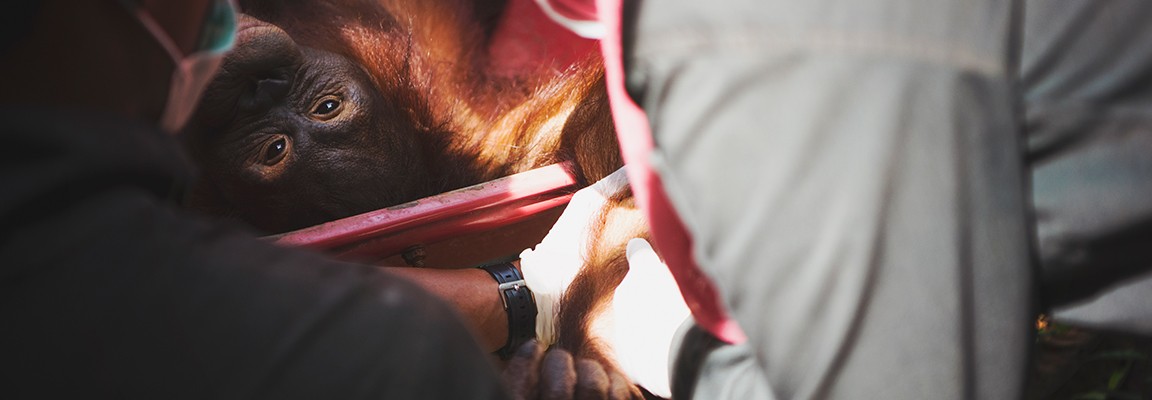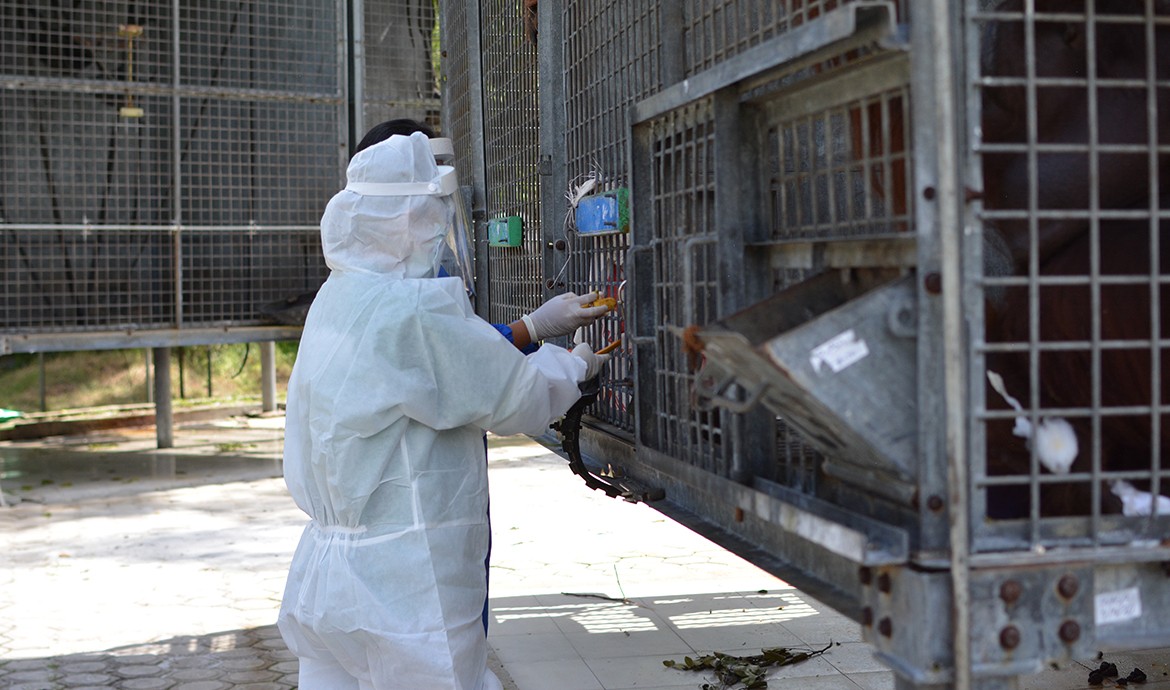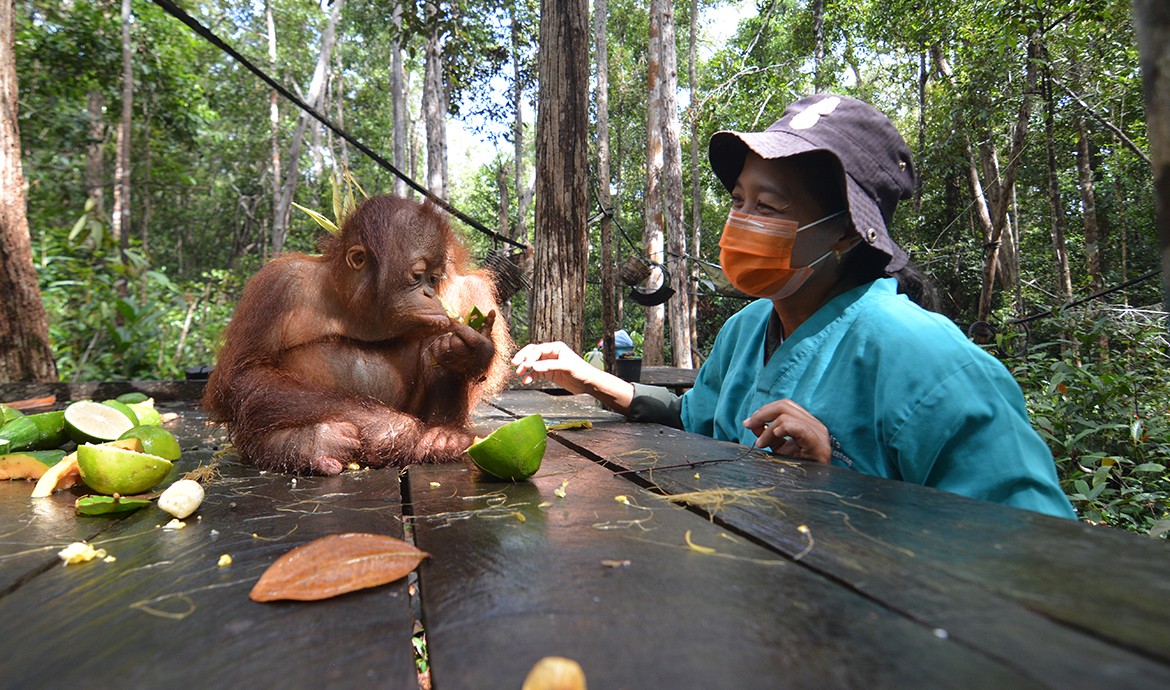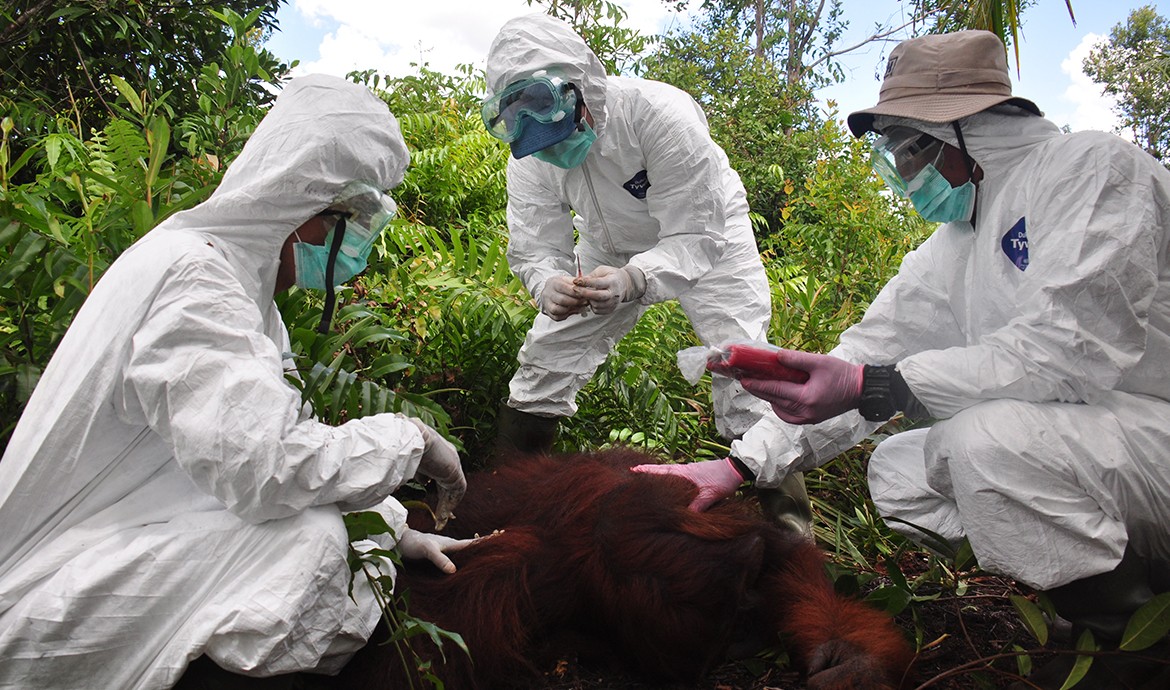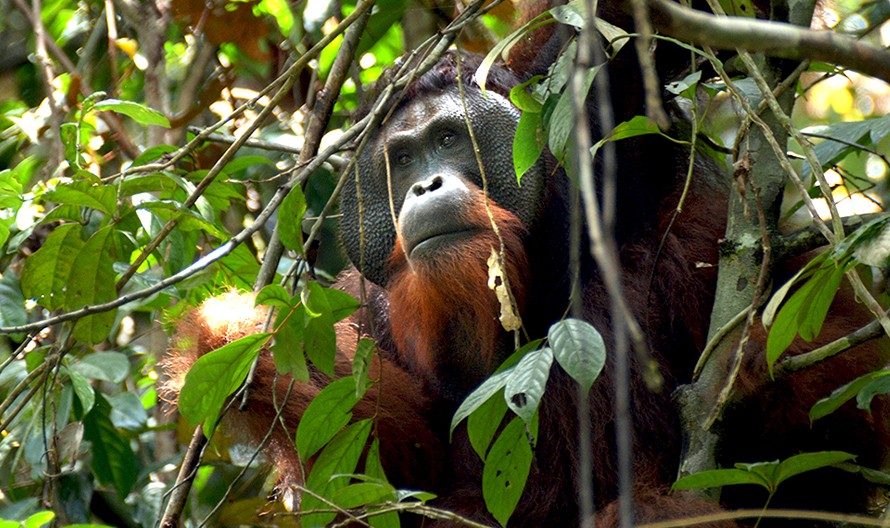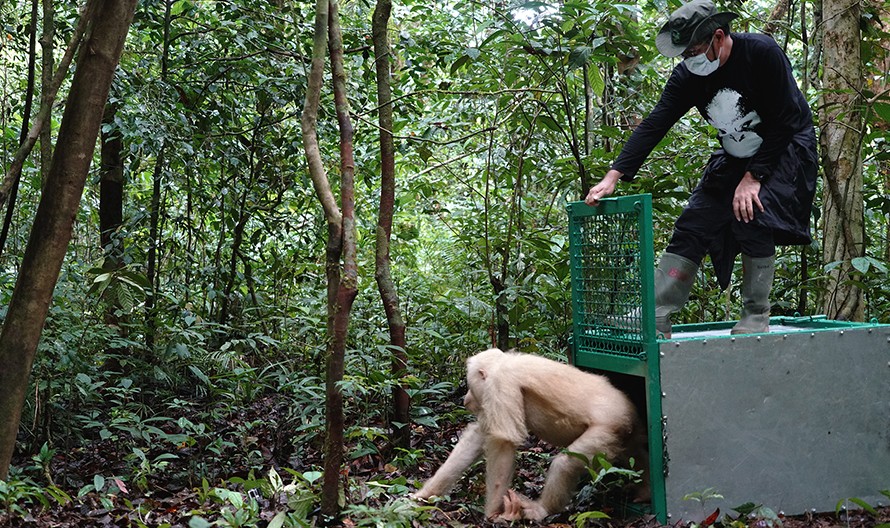DEAR ORANGUTAN FRIENDS,
On March 11, 2020, the World Health Organization (WHO) declared the new coronavirus, first identified in Wuhan, China in 2019 (COVID-19), a global pandemic. The disease, which was originally transmitted to humans from an unconfirmed exotic animal species in a wet market, now manifests itself as a respiratory infection with symptoms including fever, coughing, shortness of breath, and difficulty of breathing. In extreme cases, the infection can cause pneumonia, acute respiratory syndrome, kidney failure, and death. At the other end of the spectrum, in some cases, especially those who are the young and healthy, symptoms can be minimal, making transmission difficult to contain. COVID-19 continues to spread throughout the world, as it is confirmed in all continents except Antarctica.
Here at the Borneo Orangutan Survival (BOS) Foundation, we are based on the islands of Borneo and Java in Indonesia, where we employ over 400 staff, manage 3 natural release sites, carry out two-large scale reforestation projects, run countless community development projects, and operate two orangutan rehabilitation centres. Due to their close relation to humans, transmission of disease from humans to orangutans is a risk that we continually work to minimize through regular health screenings for staff and strict testing requirements for visitors. Currently there are no cases of transmission of COVID-19 from humans to great apes, but the potential for transmission still remains a very real possibility that we must address and manage, especially as we do not know the impact that COVID-19 may have on orangutans. It may affect them less than humans, but it also may be even more deadly, and this is simply a risk we cannot take.
BOS FOUNDATION ACTIONS
As of March 17, 2020, all BOS Foundation Centres are closing to the public. This includes our information centre at the Nyaru Menteng Orangutan Rehabilitation Centre in Central Kalimantan and the Samboja Lodge at the Samboja Lestari Orangutan Rehabilitation Centre in East Kalimantan. At both of these locations we will no longer be accepting visitors or volunteers until the disease risk has been eliminated. Additionally, our release and research sites, including our camps in the Bukit Batikap Protection Forest, Bukit Baka Bukit National Park, Kehje Sewen Forest, and the Tuanan Research Area, will no longer be accepting new volunteers or researchers. We will be re-evaluating the situation and extending or ending the project closures on a monthly basis.
We cannot cut off the orangutans from human contact completely however, as they still require daily food and care. Dedicated BOSF staff who continue to work with the orangutans have their temperature checked twice a day and are given leave if they run a fever or feel at all unwell. Staff who continue to work have increased the frequency of their hand washing, mask usage, and glove usage. All disposables are incinerated at the end of each day.
For our offices that do not partake in animal care directly, such as the BOS Foundation HQ in Bogor and the Mawas Conservation Project Office in Palangka Raya, they will be closed starting on March 17, 2020 and all staff will be given the support necessary to work from home. We will be hosting all meetings digitally or postponing as necessary. Additionally, we will be stopping the travel of our managerial and administrative staff to the animal programs in Borneo to further reduce the risk for disease transmission. Closures of our offices and inter-program travel will be re-evaluated every two weeks.


